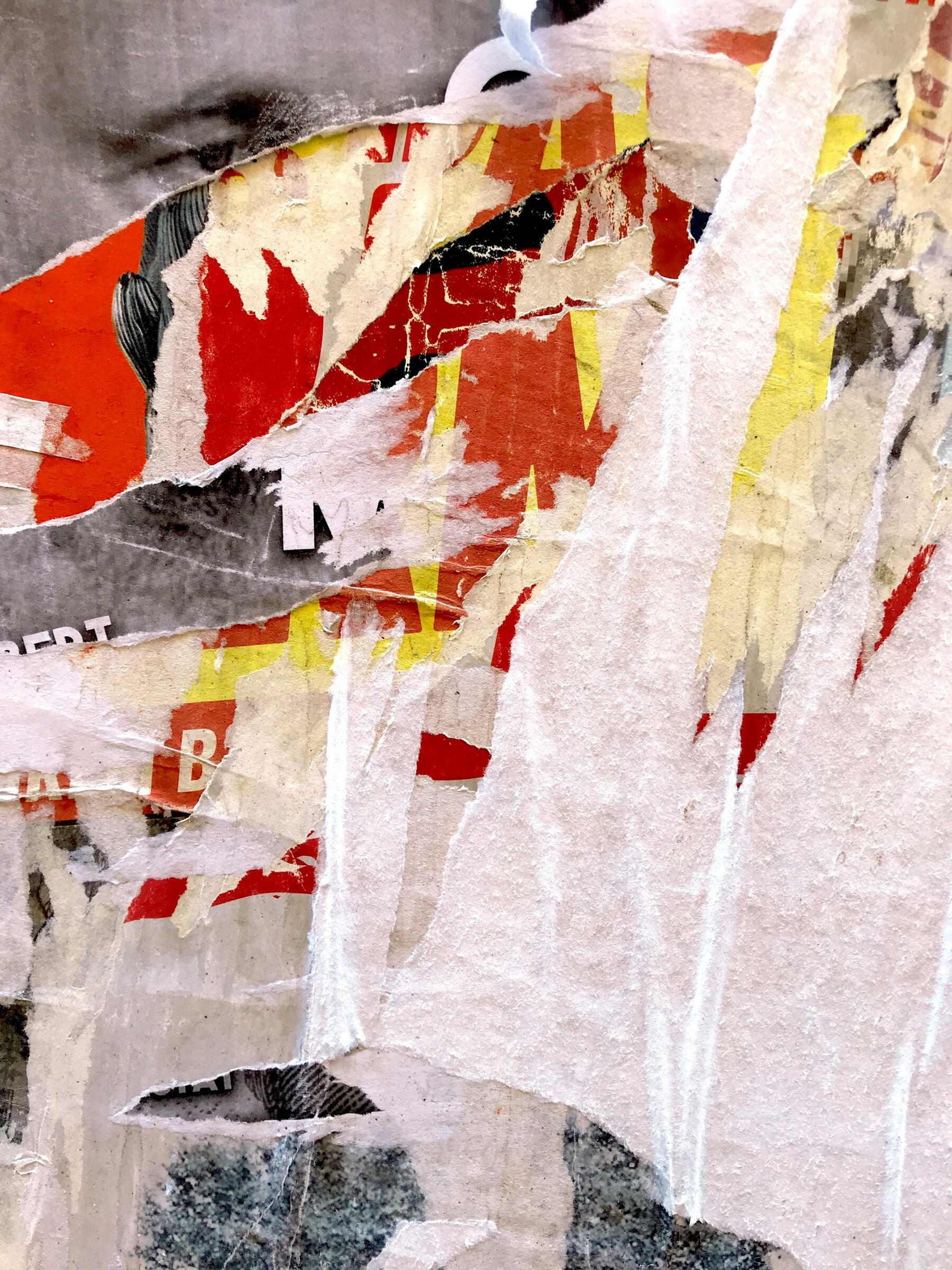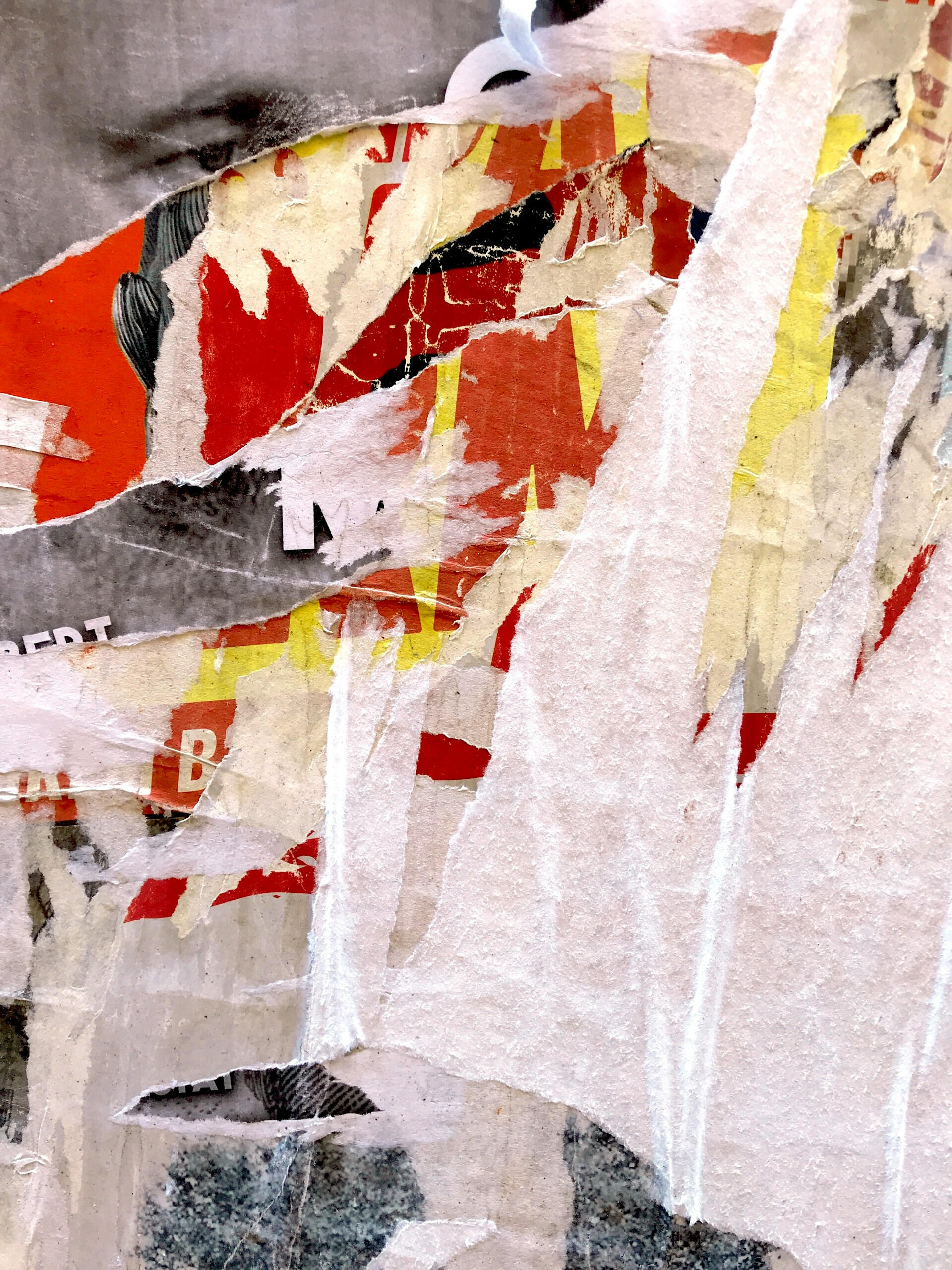b'farhesia
About the name of the website
‘b’farhesia’ is Hebrew for “in public”. It comes from the Greek ‘parrhesia’, “open, candid speech”. The Hebrew and Greek also have a sense of being unbound and a bit brazen.
About the photos
All photos on b’farhesia are by Josep Martins. I am not Josep Martins. I am Ari Geier.
About me
I am Ari Geier. My credentials should have no bearing on how you perceive what I’ve written here. Needless to say, I don’t have any.
Index

Ideas I’ve Yet to Steal
This isn’t something I’ve written. I just put this section here as a promise of more to come. A promise unmoored from lessons in the history of personal websites.While you’re here though: if all ideas are derivative, there was presumably one original creative idea or at least primitive innate idea, or set of such. What do you suppose that original idea was? Do you think we could reverse engineer it? Could we show that “from these ideas we can derive all other ideas?” Would they be boring and axiomatic like “some things have more of a property than other things” or would they be surprising like “Fluffernutters are—hands down—superior in every conceivable way, in every conceivable universe, to PB&J sandwiches”?

Inaccessible Truths
Where I get anxious about there being even more things that I can’t know, except these things aren’t things I can’t know because of a physical limitation. Lord knows there’s lots of those. These are truths that I’m physically capable of knowing, but are inaccessible to me because they are incompatible with the systems by which I access other truths. Importantly, certain social problems might be unsolvable because the truths used in the manifestation of those problems make the truths necessary to solve those problems inaccessible.Verdict: As unfalsifiable as it is unverifiable. A lot of worry over nothing. An easy pass.

Why-Questions Don’t Exist.
Ever wondered why? I sure haven’t. I’ve only ever wondered which.Verdict: A proper rejoinder to any young child’s nagging, existential questions.

Antisemites Love to Love Jews
I always thought of myself as gullible, then I considered that I had been naïve all along, yet later I realized I was optimistic. But I’m not optimistic, at least no longer, just gullible. My sister is gullible too, somehow more gullible than me, yet she’s no mark and neither am I. From a young age we both had a keen sense for someone was trying to take us in. Country club Jews can’t resist the flattery and the borsht are too humored or curious. I will not be conned by people who say they love me. Well, at least not those who say they love me because I’m Jewish.Verdict: Antisemites say Jews are at fault for antisemitism. I feel like that’s a catch-22, but here goes nothing.

Pressure & Strife
I don’t really buy social contract theory, so I made something else. I write about principles I derived from a more general observation of interactions between and within social networks.Verdict: As armchair philosophy goes, you sure got for yourself a doozy here Ari. The corpus of political philosophy at your fingertips and not one citation in the whole piece? Nice.

Courageous Knowledge Can’t Exist Online
Initially I wanted to follow up on my Inaccessible Truths piece. That piece is going to be about how so many people feel adrift, unable to put their finger on what’s wrong. I want to propose that complex societal Common Knowledge is yet to emerge, and that those feelings we have are the mutual knowledge roiling beneath the surface, waiting to be fused in just the right way and expressed as Common Knowledge. I realized though that Courageous Knowledge is a necessary precursor. I also realized that our society’s fascination with online media is inhibiting our progress toward this Courageous Knowledge, so I wrote this piece first.Verdict: Direct social critique is new to me but overall more successful than previous pieces. I’m afraid I’m not much close to that followup on Inaccessible Truths though.

Jewish Deontology or "Geier's Izmel"
You might be under the impression that the myriad traditions, disagreements, and unanswered halachic questions make Jewish ethics a complex minefield of greys. No qualms now my weary Jew. This one tool will solve most of your normative ethical predicaments.Verdict: You’ll still be a bad person, but at least you’ll have done the right thing.

Antisemites Love to Love Jews
Every Friday, after picking my children up from school, we walk to Johnny D’s to buy fruit. Johnny D’s is the extant member of several long-dead species: an affordable cash-only produce store, barely large enough to accommodate a minyan. John DePietro has worked in produce all his life, and while he’s had his own store for 30-odd years now, he got his start at Russo’s.I grew up near the Watertown line and my mother would take my sister and I to Russo’s almost every week. Back then Russo’s wasn’t hoity-toity. The storefront held two dozen tall wooden produce stands, almost too tall for the nonnas, inspecting each apples with both hands, every finger joint rolling over the surface, turned and massaged again before placed in the plastic grocery bags they’d washed, line dried, and reuse a dozen times; waxed cardboard cartons of produce stacked below each stand for ready replenishment, hanging planters the only adornments.Still, a lot of the best produce was in the back, the large cinder block warehouse that catered to Russo’s restaurateurs. The thick plastic flaps of the doorway were opaque and warped with age, doing little to keep the cool in, such that on humid summer days the door would be completely obscured by mist that would lap at your feet unexpectedly from as far as the potato stands, the chill traveling up the inside of your leg, and as you tread across the dew-laden concrete the portal’s sole sublunary sign was the faint beep of a forklift from beyond. In the back, my mother would take us past each berth, lifting the large rubber flaps, inspecting the produce with her other hand, letting it fall from her fingers before asking my sister and I to hold out doubled bags we had collected from the storefront. Those bags were so flimsy, even the green beans would pierce them.I’m sure there were Jews who went to Russo’s, but I never noticed them, or they never made themselves noticed. I was too young to put my finger on what didn’t make it Jewish and now I’m too old to remember. Maybe it could have been an Old Chelsea Jewish, but it certainly was not a Metro West Boston Jewish. I only noticed Jews–and the WASPs–at Russo’s once they renovated the storefront into what most people remember it being, with all of the prepared foods, tall ceilings, lacquered pine paneling, and artisanal canned decor. It was nothing I ever needed, though I did appreciate that they switched to high quality produce bags.John asked me once if I knew some Shmuel, the purveyor of his produce bags, apparently. When Russo’s closed, Shmuel was stuck with too many bags on order. No one else wanted bags with a (former) competitor’s name on them, so he cut John a good deal to take them off his hands. John is still using those bags years on now.This Friday my daughter’s preschool was closed, so after dropping off my son, swinging by the tailor (he wasn’t open yet, despite it being 9:30am with the sign flipped to “open”, which isn’t atypical for Sam), we stopped by Johnny D’s. We’d get the fruit later, but I needed some vegetables to prepare for Shabbos.We crashed a class at Star Dance School, about which time my daughter started asking me for a treat. She had been conditioned to. Shabbos isn’t Shabbos without a Shabbos nap (for mywife and myself) and a Shabbos treat (for the kids). After stopping by Johnny D’s on Fridays, the kids get to pick out their treats. If they want Kinder Eggs then we’ll make the trek to CVS, otherwise we’ll go to the convenience store next door before heading home. Invariably they eat it well before Shabbos starts, so I wasn’t categorically opposed to her getting a treat before noon but we would have to backtrack to the convenience stores, and I didn’t want to lug four large bags of produce, including two grotesquely elephantine kobachas–my mistake for loving them–, any further than I had to.There was one store open between the dance studio and our home, the eponymous “Beef & Turkey”, which was also a “Beef & Turkey & Chips & Drinks & A Moderately Sized Candy Selection”. I never checked their meat selection–why would I?–but I assumed they didn’t sell any pork; that “beef and turkey”, sans the other white meat, was a dog whistle for halal, so chosen as to not chafe the discriminating palatte of police officers at the D-14 station across the street.It still mystifies me how so many restaurants on that corner had failed. More “joints” than restaurants, they could serve subs, sandwiches, grinders, gyros, you name it, and they would always fail despite their proximity to the police station and Saint E’s. Perhaps they’d do better if they sold spuckies.I don’t know why a sandwich shop opens before 11:00 (maybe that was part of their problem) but there was no one at Beef & Turkey when we showed up, not even the clerk. The brown fellow who eventually rolled out of the back had an unusually entertained demeanor for someone who doesn’t own this sinking ship. He was patient too, as my daughter considered every option–with both hands–before landing on the vial of Mini M&Ms.I picked out a chocolate bar, a chocolate bar that happened to contain hazelnuts. As my wife admonished me for later, it even pictured hazelnuts on the package. But I don’t notice such things. All I saw was “bueno” emblazoned on the front and I figured it must be good for me.—“How are we doing? Still groggy?”My eyes are encrusted in sleep. They sting, the lashes pulling on each other as I pry each eyelid apart. My face is so bloated I can feel the taut reverberations in one eye as the other blinks. I can tell there are several nurses here with him–Saint E’s sends a whole cadre to each patient for no good reason; The Brig never does that–and my vision is so blurry I must be tearing, but through the pain of the pulsating warmth of my cheeks I can’t tell, and I can only tell which one is the doctor by his posture.“I’m going to hold you here overnight.”No “okay?” ICU doctors don’t mess around, but this one was particularly stern.“You could very well have a secondary bout of anaphylaxis.”Is he Indian? Maybe. He’s no brahmin though. He’s very dark. Pakistani?“This IV is just saline, but you still have epinephrine in your system and you haven’t had a bowel movement yet.”Pakistani. My eyes have cleared up enough. His name is Syed.“It’s not about how you feel. I need to be sure you don’t relapse.”I can only imagine the flak he’s gotten from other Jews in Brighton. It’s already past shkia so I’m not going to fuss regardless.He looks at me expectantly. “Understood?”“Yes.”—Along the B Line, between the stops overrun with BC students and the stops overrun with BU students, catty-corner at Washington and Comm, are two convenience stores: Lee’s and Babushka. Despite their ethnic origins, both are now owned by Indian families, and apparently–according to the junkies that congregate on the median by the bench between the Stanley Kaplan war memorial and the jukebox-painted utility box while waiting for the methadone clinic to open–there is an intense rivalry between the two stores, and I should–at the very least–never shop at Babushka.Lee’s is adjacent to a large public housing project and caters to the Black and brown crowd, while Babushka, next to the B'nai B’rith elderly housing, caters to the old Soviets. One must choose between nearly getting run over by devil-may-care delinquents or standing patiently behind ration-sensitive babushkas peeling their bananas at the register because they aren’t about to pay per pound for peels they won’t eat.I prefer Babushka because they carry whole filets of herring, but I usually shop at Lee’s; it’s on my side of the tracks.I’m no teetotaler but I drink so rarely that a beer run is an occasion and this evening I felt like having a beer. My son insisted on accompanying me to Lee’s. He took his scooter, which I had to carry through the store. I circle past the fridges in the back to the beer when a guy up the aisle exclaims “I’m with you!”Oh Jesus, not this.“I’m with you brotha!”My son had already turned to stare. I pause only just long enough.He is a hefty Black man, not even as tall as me, West African, Nigerian if I had to guess. Black shirt, black leather jacket, an imposing filigree cross hanging from a Cuban chain. His fist is raised.“Thanks.” I down-nod."You know what I'm talking about brotha? I'm with you! I have my sister.” He taps his earpiece. “She love you too. We're with you!" He pumps his fist, still raised.“Much love to you and your sister.” I start thinking about how much I could go for a chilled beer and I do my best saunter to the fridges in back.He’s still talking to his sister, with much naches, about the Jew he’s run into at the store.My son is pestering me to get the “orange beer”, Blue Moon, as I try to find a stout that isn’t imperial.“Look! Look!” The man’s hand is on my shoulder. He shoves his phone in my face as he scrolls through his collection of pro-Israel Facebook groups. “... yes yes…” He assures his sister as he pulls back his phone just as eagerly as he offered it and assumes a comically stiff upright posture. “My sister, she is very sick. Please, can you bless her?” He closes his eyes in anticipation.“I’m... just some guy.” He opens his eyes, positively discomfited. “I hope your sister gets well and I’ll pray for her along with everyone who is sick. I don’t have any special powers though.”“Oh, no no no no no… You a Jew. This is your rite! God blessed the Jews. He chose you! Please bless us.”I could just pretend to bless him; his eyes are closed again. But what does it even mean for me to bless him? For anyone to bless another? What does it mean to him? “When I pray later tonight I’ll include prayers for your sister’s health.”The cross jangles atop his trembling girth, jowls sucking in and out like a hyperventilating bullfrog. “Thank you… Thank you my Jewish friend. My brotha.”—“He meant well, but it was dehumanizing. He was telling me what it meant to be a Jew. I was just some sort of talisman for him. Eventually my son and I escaped with a six-pack of Breakside Stout and the Blue Moon.”“Okay. I see what you’re saying.” He slapped his hands on his knees. Freckles peek through the sparsely hairy ridgeline of his forearms, the undersides as pale as Mary’s bosom. He leans back while rolling his shoulders, readying to stand.He brought this on himself.I was here in the ICU overnight, over Shabbos, with nothing to do. My wife had brought me Rabbi Jaffe’s newest book on Isaiah, but my swollen sinuses felt like they would nearly push my eyes out of their sockets every time I focused on the page. So when this nurse popped in during his break, asking if I didn’t mind a few questions about Judaism, I was happy to humor him.He wasn’t spouting the standard J-for-J lines. He and a nominally Jewish friend of his had fallen down some messianic WhatsApp groups, spiraling over some prophetic Israeli rabbi. I tried not to remember too much. I’m not going to deprogram this sap during his forfeited smoke break. The substance is never the root of the problem anyway. He’s certainly been polite and demure, concerned that he’s imposing on me, holding me hostage. No sir, you’re trapped in here with me.“Don’t get me wrong. I don’t think you’re an antisemite–not inherently. I’ve said racist things; doesn’t make me a racist–, but a lot of Christians don’t see how their love can be bigotry.” His shoulders turn out, so rigid he can no longer stand. “I appreciate your interest and enthusiasm and you can absolutely believe what you believe without any of the bigotry. But your enthusiasm comes from your love of Christianity; Jews as a tool to a Christian end, not Jews left to be Jews.”“Well I, I wouldn’t want you to be anything but Jewish. I know you only follow the Old Testament and that’s what this rabbi does too, so I was just wondering what you thought of the possibilities.” Despite the assurance his eyes narrow to an apprehensive “why?”, quaver with a pleading “why? Why do this?” His hands grasp the edge of the seat toward me as he shifts, putting the back between us.“I keep the Torah, and maybe this rabbi does too. He might be a pious Jew misunderstood by others, but what we do is besides the point. Most Jews don’t follow the Torah. Most, including the overwhelming majority of Israelis, are like your friend, secular.”“Really!?” He’s surprised only for as long as his eyes take to go wide, then sheepish again.“Yes. So you want us to be Jewish, but most Jews don’t want to be religious Jews. And no religious Jew wants Jesus” I preemptively hold out my hand. ”So is that what you want? And I know what you’ll say.” And I do–his mouth slightly open, shoulders hunched over the back of the chair, one hand limped up–I know what he’ll say. ”’That our messiahs will be the same. I get that you’re espousing what you think is best for both of us. Heck, I want what’s best for us from the perspective of what Judaism considers best. But just because your vision of the messiah has Christians and Jews arm-in-arm, that’s not a Jew any Jew wants to be. Jews, at least most of us–there are Chabadniks,–but most of us don’t think about the messiah too often. There is a world to come, but Judaism mostly concerns itself with the acts and consequences in this world. Yes I wait for him every day, though he tarries, but I am not party to your salvation.”He’s made his way across by the foot of the bed, yet despite being within reach of the door, he can’t leave. I haven’t let go.“So what happens in 20 years or 50 years or whenever Jews are supposed to help you all bring the messiah? What happens when this messiah ultimately doesn’t come? Will your pastors bear the blame? What will they say to those in a crisis of faith? Will they admit wrong? Will they still shower their love on uncooperative, unrepentant Jews like myself?”“I’m sorry. I shouldn’t have bothered you.”“It was no bother at all. Any time.”

Courageous Knowledge Can’t Exist Online
No one belief. No one truth. No one person does a revolution make.Can I win a fight for a truth I am unaware of? No.
Can I win a fight for a truth that only I know? No.
Can we win a fight for a truth we know privately? No.
Can we win a fight for a truth we share in knowledge of? Not likely.
Can we win a fight for a truth we share in knowledge of our will to fight for? Now we’re getting somewhere!The health of our communities rests on the common knowledge of our ideals, values, and our knotted fabric of beliefs. When I say “common knowledge”, I mean it in a specific sense.You know a thing. That is knowledge.
You and I know the same thing. That is mutual knowledge.
You and I know that you and I know the same thing. That is common knowledge.Common knowledge is not some “ooo how meta” curiosity. Successful communication–and really almost any interaction between two people–relies on common knowledge. I can’t so much as cross the street without being pretty darn sure that every driver knows and wants to obey traffic laws. This is important, but relatively straightforward and benign. The common knowledge necessary for the American Revolution isn’t so simple or benign.I love going to the Patriot’s Day reenactment of the Battle on Lexington Green. Those militiamen exhibited a lot of courage, but they were only courageous together. [I guess the British soldiers were courageous to some degree–and the victory wouldn’t be as sweet if they were all a bunch of cowards–, but you know, screw them.]One ardent militiaman alone on the Green isn’t a patriot but a fool. Seeing all those grey coats fall on the Green, you might think them all fools. But they all believed in their cause and its importance. They all knew of each other’s belief in their cause and its importance. But is that common knowledge worth the risk to die for? No. You need to know that your neighbor has hidden weapons. He needs to have frequently heard you badmouth Governor Hutchinson. You need to know that your pastor has made it clear to the laity that he doesn’t much like Anglicanism. You need to know the miller’s son funds pamphleteers encouraging disobedience against the Crown and that the miller is proud of his son. We need confidence when we take such risks. These small courageous acts of common knowledge build the network of common knowledge we need to be courageous as a society.I call this courageous knowledge.The topic of courageous knowledge is quite broad. I could talk about courageous knowledge within a propaganda state controlling mutual knowledge. I could talk about how one can exercise courageous knowledge at work. I could talk about how communities use preference falsification and cowardice to prevent courageous knowledge from disrupting desirable norms. But I’d like to talk about courageous knowledge in online media.[Pre-emptive caveat: online media can be very effective at creating mutual knowledge, and mutual knowledge is valuable. However some mutual knowledge is worthless but then becomes extremely valuable as common knowledge. This is especially true for societal knowledge. Mutual knowledge of car repair has great utility, but mutual knowledge that slavery is evil isn’t gonna free many slaves.]The other day I watched three unrelated YouTube videos–and I challenge you to find a relationship between these videos beyond the ones I’m about to explicate the mother out of–that get at the problems with courageous knowledge in online media:Alec of Technology Connections, in a 20 minute video about can opener design, after excoriating Toxic Midwesternininty says: “Wow, this video took a weird turn. Is there a technology connection to be found here? Well… I suppose it’s more of a social commentary connection, but this can opener has led me to ask a pretty deep question: ‘What else might we be using or doing in day-to-day life which we just assume is how things are [beautiful eye fluttering] and never question?’ [pause] That’s a deep line of inquiry isn’t it? You can choose to go as deep as you’d like but I’ll just pull us back from that precipice and focus on technology.”Vince, also known on the internet as Pleasant Kenobi, on his Magic the Gathering and Warhammer channel, has a 10 minute video about social media influencers and Pokemon cards in which he says: “..fucking big. The reputation of people like the BBCE–which is funny because the BBC in our country are a once proud traditionalist uh tradition journalistic body that are now incredibly transphobic, but it’s just funny to say BBC and not think of them. But the BBCE, the Baseball Card Exchange…”Zee, on her social criticism channel, Kidology, talks through the realization that she is an incel: “Regrettably, the social connotations associated with being involuntarily celibate sort of creates–I guess in a way–stigma, because I haven’t, until very recently–actually, thank you to this person who reached out to me because I would have never thought about this. I always just assumed that I was–you know–happy on my own. Well not happy on my own, but that I chose to be alone and not lonely. But I am lonely and not alone. And that’s okay. It is what it is. And it was a very weird moment of self reflection to realize that I am actually involuntarily celibate. I am an incel.”Alec seems to be trying to intimate some meaningful social commentary. I took his criticism of “Toxic Midwesternininty” as a pun on toxic masculinity, possibly pressing us to challenge chauvinism more generally, but that’s an awfully cryptic deep cut.If anything, Alec’s video shows just how unusual it is for someone in his position to risk taking a courageous step in creating common knowledge. Sometimes you have an individual like Mike Lindell who, regardless of whether you agree with him or not–and, for the record, I don’t; he’s a dangerous idiot–, makes real attempts at courageous knowledge (e.g. his move to create a closed social media platform). But those are the exceptions.As curious as I am about what Alec wanted to say, I don’t fault him for his decision. Sharing controversial beliefs with his 1.5 million subscribers only gets him mutual knowledge with no clear path to common knowledge. And while comments to his video can, with some effort on his part, technically constitute common knowledge, the separation between creator and audience and between audience and audience is so wide that it would lend no courage. Alec would incur all of the risk while providing himself and his audience little to know common knowledge or courage.Vince is the exact opposite of Alec. Vince isn’t scripted and he just spills his belief about the BBC being transphobic. We all have mutual knowledge of Vince’s belief, but we don’t have common knowledge. This was the same trap Alec would have fallen into. The few comments that mention Vince’s BBC remark are not consequential to effective common knowledge. I would argue (though I might be more easily swayed on this one) that the common knowledge generated by Vince talking with his mother–sorry, “mum”–for 2 minutes on the topic of transphobia at the BCC is more valuable than the fleeting mutual knowledge of his 25k viewers.Also, we don’t know Vince well enough to make us courageous, and we can’t know him that well through YouTube. Vince doesn’t know who those commenters are; Vince doesn’t know me either, and so what if he does? If Britain descends into Children of Men tomorrow, I’ll mail Vince some homemade baked beans [for all my flack, I much prefer an English fryup], but I’m not about to take a relevant courageous step because Vince did it online.He’s also stated his beliefs on BLM and Late Capitalism in passing but we don’t know if he kept the BBC line because he thought it was important to state his beliefs, because BBCE vs. BBC tickled him, or because his lack of filter is part of a manufactured persona (a la Joss Whedon). I believe he thinks they are important, but I don’t have nearly enough backing and confidence to act on Vince’s courage, and I never will through video alone.“But Ari,” you might say, “you criticize Alec for taking the low road and then you criticize Vince for taking the high road. Are you some conservative ‘do nothing’ twit?” Maybe. Probably. But what I’m really critical of here is the ineffectiveness of the medium. Fliers, conferences, local newspaper spotlights, etc. are all more likely to generate courageous knowledge than a million views on TikTok, if only because two people are more likely to collide in meatspace while experiencing that same media. So it doesn’t matter how they communicate knowledge on YouTube, if it’s via YouTube it’s not going to create courageous knowledge.Zee’s video pushes the limits and shows just how futile it is to create courageous knowledge online. She made a video where she stated “Not A”, someone responded with “Yes A, and here’s why’, Zee came around and is “Yes A”. That’s already a lot of work to achieve mutual knowledge online. Zee takes the courageous step and confirms her half of the common knowledge… and that’s it. Maybe the interlocutor responded privately and now they share courageous knowledge, but the outcome was barely different than if they had a telephone call about it.Most of comments on Zee’s video are encouraging, inspiring, and insightful, but none of them are going to motivate anyone who reads them to act on their behalf. For all of the lonely people commenting on the video, there is not one reader calling to talk with any of them.There are other positive reasons for Alec, Vince and Zee to say what they said. So if Vince cares about transphobia at the BBC, then informing his audience is a valuable start. But the people who achieve that end require courageous knowledge and they are not going to motivate that courageous knowledge through online media.These examples highlight some problems with courageous knowledge in modern media, which I’d liked to spell out more clearly. To highlight several (and I know that having so many kinda defeats the purpose of highlighting, but I had to cut this list down already so please bear with me):Because of the breath, variety, and rapid evolution of the internet, it is extremely difficult to intentionally build common knowledge.Online media does not filtering knowledge, so there are just too many beliefs out there, and that dilution prevents us from being courageous.Online media isn’t much worse than radio or magazines at generating courageous knowledge, but because it can be so good at generating mutual knowledge, we get duped into thinking it can do more. The one-to-many nature of most media makes it incapable of building common knowledge or courage.Because our media consumption is almost entirely isolated–I don’t even know which newspapers my neighbors subscribe to anymore–we are not able to take small courageous steps of common knowledge to take truly courageous action together.You can’t be courageous if you’re not taking risks with your knowledge, which means online media rarely provides opportunities to take courageous steps. Places like Twitter are toxic precisely because there is no risk for most people. You need high confidence in others in order to have strong courageous knowledge, and because it’s so easily to be a keyboard warrior, people can’t build much confidence in others online.Confidence also requires sustained sharing of common knowledge between the same individuals, but because we’re so scattered online media is extremely ineffective at building courageous networks.Because we are consuming so much mutual knowledge online with no path to common knowledge, unfulfilled mutual knowledge festers. The loneliness we experience is from a lack of regularly forming common knowledge. The resentment, disillusionment, cruelty, and resignation are manifestations of cowardice stemming from our inability to foster courageous knowledge through our actions.I saw a gruesome image of some poached rhinoceros on Reddit many years ago. It so upsets me that I can’t even bring myself to describe to you what about it upsets me so much. That image still keeps me up at night and I think it changed my perception on animal suffering. I’ve thought about doing something about it, but I haven’t. I’ve given a lot more time and money to people and causes that engage with me directly, yet I care less about them. That image primed me to take a courageous step on animal suffering, but it didn’t give me the courage to do anything about it. It didn’t give me the courage to become an ethical vegan. It didn’t get me the courage to tell my friends they shouldn’t buy leather. It didn’t give me the courage to approach my senator about how she should vote no on ranching subsidies.As of writing this, no one I know knows how much this picture affects me. At least, I don’t know that they know; which is the important part. Maybe you already knew. Maybe everyone knows. But I don’t know that. And if I knew my wife knew and she so much as looked at me eating an egg…Suppose you and I want to champion animal welfare by supporting the decriminalization of the scalping of poachers and sale of poacher scalps, so we create the Organization For the Free And Legal Scalping of Poachers And Selling Them on Etsy, OFFALSPASTE.25 years ago, if we got the local paper to run an OpEd on OFFALSPASTE, we ran an ad on a few radio programs, and paid for a billboard outside the petting zoo we’d be pretty happy with our coverage. We could put up fliers for meetings, bribe friends with food and alcohol, maybe put up a booth by Cabela’s to engage with locals who might be interested in scalping poachers, and soon enough OFFALSPASTE has animal welfare / shag carpet rights legislation before Congress.Mass media wasn’t sufficient 25 years ago either, but we never expected it to be. No one ever thought you’d get courageous knowledge by running a bunch of radio programs. But the shallow socialization of online media lulls us into a a false perception that it can. “Surely if we get OFFALSPASTE’s message out on Twitter, and Instagram, and Reddit then people will be galvanized into action!” No, almost none of them will take so much as one courageous step.If OFFALSPASTE were to go viral, the best we could hope for is to inspire other people to do the legwork for us. But they are still going to have to leverage direct, offline communication to build that courageous knowledge, which is where we should have started. All those retweets, likes, and replies add up to almost no common knowledge, no courage, and not one scalped poacher. Shameful.

Inaccessible Truths
“There are no lines in nature” is a quote attributed to the painter Manet. This statement has many interesting facets to it. I will explore one of those here: how we represent truth.We use things to represent truths in the world. “I love my dog” is a truth I represent in this world. I pet her. I take her on long walks. I feed her well. I give her treats and tell her she’s a good dog. This world would have to be fundamentally different for me not to love my dog. “Addition is commutative” (e.g. 2 + 5 = 5 + 2) is a truth I represent in this world. I do my taxes. I reschedule my calendar. Long ago I did science homework. This world would have to be fundamentally different for addition to not be commutative.We understand that these things we represent truths with are imperfect. The only proof that there are two cups on my desk right now are those two cups and my desk. A picture, a video, a notarize letter of their existence. These representations are all limited. That is the plain sense in which Manet provides insight. The lines on a painting are a limited representation of the truth they are trying to show.There is another way that their truth is limited. The lines of a painting are limited in what truths they can show. Those lines cannot represent the fact that “Joanne feeling a certain way when she hears two in-tune violins play a note in unison” or “Cletus is pretty sure his faith in Methodist doctrine is weak”. There would need to be some additional explanation besides the painting.Each representation will have its limitations. We hope that if we have a wide variety of representations (written, mathematical, mechanical, artistic, etc.) and we are good at them, then we can communicate most truths.Researchers who study how different languages are used have shown that speakers of different languages see the world differently. Some small truths about color are inaccessible to us because of our language. This is interesting, but probably not that important to you or me in our lives. We can’t see microwaves or radio waves, so some limits in color probably isn’t a big deal.Mathematicians have shown that there is no single set of arithmetic rules that can be used to show all things we know to be arithmetically true. This is interesting, but again, it’s probably not that important to you or me in our lives. Math still works. There is no “math religion”, so no one is too broken up over the fact that we have to use multiple sets of rules.My concern is that there are truths about our social world that we are limited in because of society. For example, every person in every society understands that other people use a social system where certain actions are good and other actions are less good. Perhaps this doesn’t have to be the case, but because of a choice that one of our ancestors made we cannot escape that social system or see the way out. Maybe some difficult problems for us, like the problem of evil (i.e. “why do good things happen to bad people?”) are impossible for us to answer because of society we are a part of.I am not saying something like “Moldovans are better workers than Tunisians because of certain values in their society.” I am also not saying “humans are not mentally capable of understanding certain complex ideas about the world.” I am saying something like “imagine a world where certain historical events lead humans to believe certain truths that made it impossible for them to conceive of shared ownership of an item. They might constantly be fighting over things, understanding that this a major problem for them, yet be forever incapable for accessing the solution. That might be our society, but with different inaccessible truths.”I don’t think I can prove this idea. Even if I could, we wouldn’t be able to show what those inaccessible truths are. We could guess what they are based on the problems we haven’t been able to solve, but we would simply need to have faith that those truths exist and that they are inaccessible to us and not simply undiscovered. I hope that I am wrong and that all of these truths, within our physical capacity, are accessible.

Pressure & Strife
Non-newtonian fluids are fluids that change viscosity (i.e. get thinner or thicker) when under stress. If you take a mixture of water and cornstarch and gently stir it with a spoon, the mixture feels like a thin soup. The faster you stir, the thicker it feels. And if you thwap it with the bottom of your spoon it feels firm. This mixture is known as a “shear thickening” fluid. Other fluids (e.g. ketchup) are “shear thinning”, becoming thinner under stress.I’ve noticed that small, local social networks (family, old friends, etc.) are solid relationships regardless of the amount of external pressure they experience. When I say “pressure”, I mean any perceived resistance that doesn’t originate within the social network. That pressure could be other people (e.g. a prick of a police chief), an organization (e.g. a neighboring clan stealing resources), or natural (e.g. a nation-wide drought). This resistance doesn’t have to be real, merely perceived resistance.But as these networks get larger and people have fewer direct connections, the more pressure seems necessary to keep them solid. When was America most “American”? When fighting for independence, when fighting Nazis, when racing the Soviets to space. When were rights activists most “activisty”? When fighting for voting rights, when barred from businesses, when shot protesting. The pressure bound them.For medium sized networks, pressure is also necessary to bind people. From top law firms to sandwich shops, we know that the ones that have more pressure, more competition, more hours, more work are the places that have more camaraderie. The part time law firm and the slow gyro joint aren’t going to have employees that care about the situation that brings them together.The things that cause pressures certainly break social networks, but the presence of a pressure doesn’t break social networks. If anything each additional pressure only strengthened their bonds.Small social networks don’t need that. Siblings escaping from slavery will certainly have tight bonds, but spending the summers canoeing on Lake Erie will do. A local church can be bound by organizing pacifists against a draft, but Wednesday night Bible studies and Easter egg hunts will do.At the same time, the larger the social networks are the more likely they are to fail from internal strife. When I say “strife” I mean any stress that originates within the social network. My assumption right now is that most strife starts with some perceived power imbalance. This power imbalance could be within a family (e.g. a favored sibling), an organization (e.g. unequal recognition at work for individuals’s contributions), or natural (e.g. a flood destroys half of a town).Small social networks can withstand much more relative strife than cities or nations. There are likely be many reasons for this. It might be because of some psychological strength to blood ties and face-to-face relationships. It might be because it’s harder to empathize with people we don’t know. It might be logistical, that it’s simply easier to coordinate and some individual problems. It might be structural, that larger social issues are simply more difficult because they are interwoven with every other problem those social networks have. It might be historical, that we have developed more tools and better tools because we have had more time and opportunity to solve these problems (e.g. there are more couples that fight than nations that fight, so there are more chances for us to figure out ways to resolve issues between couples).Obviously there are many other factors at work within and between social networks, but pressure and strife are important. I think that the larger a social network gets, the more it exhibits these non-Newtonian properties. That is, large networks require more and more pressure to maintain themselves, while also being more susceptible to strife.I will drop the “non-Newtonian properties” analogy at this point because it doesn’t hold much use. As far as I know, there is no physical material that is both shear thickening and shear thinning. Instead, I will call this “pressure and strife”, pressure being perceived outside the given social network you are looking at and strife being perceived inside that social network.We mostly see this with governments since they are so large. If there is an external threat (pressure) to a country that is a cause a leader can more easily rally around. If there isn’t an external threat, and the leaders can’t fix their internal problems (strife) or they don’t want to fix their internal problems, then they have to find a larger external threat. It is very clear how dictators and warlords do this. Democracies do it all the time too.It’s not that people and systems are always intentionally creating conflict (pressure). Sure, despots like Saddam Hussain do it on purpose. But America does it because it’s fruitful for its leaders. They are trained to manufacture pressure. You just can’t get people juiced up and excited for long policy discussions, expensive prophylactic programs, and difficult discussions with their neighbors. Those activities are a treacherous path, with the risk of drawing our eyes away from pressure and toward our strife.Pressure and strife isn’t just a dressed up “us versus them” mentality. It has a lot more explanatory power than that. I see many interactions between social networks being better understood through this lens of pressure and strife.Empires don’t exactly “crumble under their own weight”, they disperse without sufficient pressure, forced apart by strife. They get too big to create pressure larger than their strife. The Romans, the Mongols, the British. They all failed to maintain enough external pressure to keep them bound up. Eventually they weren’t able to distract from or solve their internal problems and broke up into smaller chunks that were individually stable or had enough external pressure. These empires, like most empires I know of, are great at manufacturing pressures that they successfully overcome. They are not as good at resolving strife, so when they can’t create pressure, the strife outweighs the pressure and they fall.In America, the Republican party successfully binds itself by creating pressure. I would even argue that the reason Republicans see themselves as more “American” is precisely because they set more pressure along lines of nationality (e.g. America vs. China economically, American Democracy vs. European Democratic Socialism, American Evangelical Christianity vs Islam, legal American citizens vs. illegal aliens, etc.).The Democratic party creates pressures too. They appear less solid because their pressure is harder to create, harder to grasp, and not clearly built along national lines. Liberals mostly want to solve strife, and they do this by creating “objective” pressure. White guilt, social justice, etc. are constructs created by liberals to provide an objective value that pressures individuals. Their platform’s pressures are more “religious”.Both parties’s pressures distract from their strife. Both are motley crews. Republicans have establishment bankers and old money mixed in with people who are sceptical of the establishment and vote against social programs targeted to help them. Democratic ranks are filled with both the underprivileged and self-acknowledge privileged folk who make very few personal sacrifices for their trodden companions.The balance of pressure and strife also present with religions, social movements, and probably any social network where most people in the network don’t know most of the other people in the network.There might be good counter-examples. Why do some large social networks have relatively strong bonds even though they don’t experience a lot of pressure? (e.g. Hinduism or Switzerland) Part of it might be my ignorance. I’m just not familiar with enough of the world and history. Perhaps they are better at resolving strife. Perhaps they are structured in a way so that they can maintain bonds without pressure. I will leave that question open here for now, but I hope it doesn’t stay open.Feedback I’ve received that needs to be better accounted for:What is the affect of the presence of pressure on strife? Is it a negating/eliminating effect? Is it a balancing effect?What are the dynamics of pressure and strife in different sized group? Be more precise. Is it size, social distance, number/quality of the ties?What is the difference between a potential pressure and an actual pressure? (e.g. the lurking possibility of a mega-corporation displacing a town’s local business (remote “potential” pressure), the more real pressure when that happens to a neighboring town (“potential” pressure), and a mega-corp actually building a shop in the town which townspeople are now going to (“actual” pressure))Rough Outline of my “Pressure and Strife” theory. Ideas to be continued:This theory is a way to describe some important aspects of interactions between and within social networks.“Some important aspects” not all.“A way to describe” I am not making a value judgement on those social networks or their interactions.This theory has a pretty standard repertoire of philosophical assumptions: some degree of realism, some degree of free will, and [I hope you will grant me] some degree of charitable interpretationPressure thickens social networks.Pressure occurs when a social network perceives an encounter with resistance. [Hobbes, Hayek, and any other number of Western political philosophers might conceive of pressure as an “obstacle to desires”, a “restriction of liberties”, etc. I am speaking more about groups. Also, the resistance I speak about might not be desires, liberties, etc.]The magnitude of a pressure on a social network is a direct function of its perceived size and impact relative to that social network.Strife thins social networks.Strife occurs when there is a perceived power imbalance within a social network.The easier it is for a social network to communicate, the easier it is for them to resolve strife.The magnitude of a strife in a social network is a direct function of the perceived power imbalance.Absent any strife, social networks with “zero distance” (i.e. everyone in it communicates with everyone else in it) require no pressure to be maintained.There is no social network with zero strifeSocial networks with zero distance are the most resistant to thinning by strife.The more distant a social network gets, the more it is affected by thickening from pressure and thinning from strife.A social network's stability is a function of closeness/centrality of the network relative to its ratio of pressure to strife. (i.e. if a network is close then it can withstand a lot more strife to pressure, while a distant network cannot withstand a lot of strife without much pressure)Social networks that experience more pressure are stronger.The better a social network is at resolving strife, the more sustainable it is.Pressure on one social network by another social network isn’t exactly strife within a larger social network.Sometimes the perception of these conflicts is mostly seen through the lens of pressure. For example the pressure on Native Americans by European colonizers could be seen as a strife within the social network of humanity, but because those two networks were almost completely detached, had limited to no communication, and because of that the “social network of humanity” didn’t have any methods for effectively resolving the strife.Sometimes the perception of these conflicts is mostly seen through the lens of strife. For example the American Civil War. Even the name indicates strife. It is not the “Union and Confederacy War”. There are certainly narratives around the North applied pressure and how that pressure helped bind “The South”, but the narrative is mostly around America’s inability to resolve strife within that social network.Because social networks are nested and intersect in complicated ways and they all have strifes, these configurations are important. The most important configuration is whether a social network communicates their perception of a strife as a strife that the larger network should resolve using its organs of resolution (i.e. a strife) or as a problem external to this social network that they must solve independently of the other social network (i.e. a pressure). This perception very heavily determines the resulting interactions.Pressure by natural forces is always pressure. There is no communicating with nature, so nature is not a part of a social network that can construe strife.Pressure and strife are only perceived.There might be real resistances that a social network experiences, but if they isn’t a shared understanding of those experiences by the members of a social network then they don’t affect the status of the social network.The magnitude of a pressure or strife is not always equal (or even close to equal) with the severity of the actual situation. This isn’t very important though. Almost any pressure or strife has been seen as trivial or dire by different social networks at different times in history. The relation between different groups, their pressures and strifes, and the pragmatics of the situation are what’s important.There are pressures and strifes that are not based on any real truth.“Social network” can probably be abstracted to any interdependent system (e.g. a biome), but it’s not useful.Non-sentient networks don’t have pressures and strifes because they don’t perceive.Pressures and strifes are shared mental states within a social network arising from perceived resistance and power imbalances. These mental states determine how social networks interact. A non-sentient network only encounters physical resistance and power imbalances [as opposed to social networks, which there might be nothing physical to speak of, or the physical reality doesn’t match the perception of its magnitude]. Because non-sentient networks react equally to all physical interactions according to the laws of nature, talking about these encounters outside of sentient life is not useful.This theory means that some problems are very difficult, if not impossible to solveBecause animals and plants aren’t part of our social network, we cannot conceive of humanity’s destruction of life on Earth as a strife. We cannot communicate with most animals, so there is no strife. We wouldn’t have a way of resolving it with non-human life either. We can’t share mental states with most of them.I only see two ways of potentially resolving problems such as these:Create a pressure that enforces a system so that we limit our destruction of the non-human world [such that if they were all part of our social network there would be very little strife]. Many social networks that care about non-human life have pressures like these. However, such a pressure is probably not one that we can all easily adopt. It’s also probably not sustainable. A humanity-wide pressure would have to be extremely strong and even in small social networks no pressure keeps the same strength throughout that network's existence.The other option is for us to somehow escape this system where interactions within and between social networks dictate most of what we do.

Jewish Deontology or “Geier’s Izmel”
A colleague of mine recently asked “favorite philosophical razor?” I gave them a partial answer that I’ll expand on here.I am fond of what I call Sidney Morgenbesser's "Jewish Deontology Razor":"In gentile ethics ‘ought’ implies ‘can’. In Jewish ethics ‘can’ implies ‘don’t’."This principle has a great deal of utility. It is also humorous. Though if you don’t know how to use it you probably don’t find it more than facially funny. I’m not going to explain the joke.I would like to expand on Morgenbesser’s razor, and since I get my razor of choice, I’m choosing the izmel:In Jewish Deontology:
1. ‘Ought’ implies ‘must’.
2. ‘Must’ does not imply ‘can’.
3. ‘Can’ implies ‘don’t’.This tool lacks the whit and originality of Morgenbesser, but it will remove most ambiguity from ethical decisions. As a forewarning: 1 increases parental resentment; 2 increases guilt; and 3 increases religious resentment.

Why-Questions Don’t Exist.
I added a period to the title of this piece so that you aren’t confused. I also added a hyphen because the title is a polemic about why-questions—that is, questions of the form “Why Q?”—rather than the even more polemic title sans hyphen implying that this piece would contend that questions don’t exist.Note: Due to personal limits of money, time, and education, my preparation on this subject is limited entirely to the Stanford Encyclopedia of Philosophy’s article on questions and Bradford Skow’s Reasons Why. I haven’t actually read Skow’s book yet. I read a review of the book and the first chapter which Skow provides for free. I ordered the book, but because of the holiday slowdown it’s still in the mail and won’t arrive for another week. I’ll get to it in 2021. As of you reading this it’s probably arrived.This piece is structured as such:You’re still with me? That’s a relief.You are hereMy Contentions About Why-questionsClarifying Contention OneConventions of Why-questionsMotivation (Contention Two)A Real Humdinger (Contention Three)My Contentions About Why-questions
Contention One: Why-questions are just complex, convention-laden what-questions and how-questions, which are themselves just complex which-questions.Contention Two: Why-questions are used because they are convenient.Contention Three: Why-questions, due to their complexity, have created some confusion when asking certain questions. My description of why-questions makes them easier to parse.Clarifying Contention One
When we ask “Why Q?” we are asking “How is it that Q?” or, more broadly: “What can you tell me about Q that justifies Q?” In turn these are really just asking “Which things concerning Q justify Q?” So while why-questions do exist, they do not have any unique atomic function.I am very aware that I’m throwing around the term “justify” a lot without accounting for it. I’m not going to account for it here, or maybe ever. You’re gonna have to deal.To expand a bit further, there are only two types of questions “yes/no” [whether-questions] and “multiple choice” [which-questions]. Most questions are just complicated which-questions with infinite possible answers that combine in just as many ways to sufficiently answer a question.For example, “why does glass break so easily?” is really just a generalized form of “how is it that glass breaks the way it does compared to other materials?” or “what physical properties does glass have and/or what laws of nature contribute to glass breaking the way it does compared to other materials?” or similar such questions. All of those questions boil down to something resembling this which-question: “which set of laws of nature and which physical properties does glass (and materials that I might otherwise think should react similarly under that set of laws of nature) have to sufficiently understand the phenomenon of glass breaking in relation to other materials breaking?” This which-question, as will be shown below, isn’t a complete expansion of the underlying why-question, but it gets us a good way along.This is the basic structure of the question, but there are several implicit layers of assumptions and conventions when asking why-questions. Some of these might be culturally specific, but I doubt that there is a language without any conventions.Why-questions fall into three forms:“Which are the causes concerning Q that would sufficiently justify Q for me?”Examples might be: “Why did my sunflowers die?” or “why did my bike wheel go flat all of a sudden?”“Which are the grounds concerning Q that would sufficiently justify Q for me?”Examples might be: “Why does salt melt ice?” or “why does wind feel cold?”“Which are the causes and grounds concerning Q that would sufficiently justify Q for me?”Examples might be: “Why is there a limit on how quickly pilots can safely accelerate in a plane?” or “Why was there so much more snow this year than the previous year?”I use the technical terms “causes” and “grounds” here because Skow uses them. I believe they are together complete in providing reasons why, which—to use Skow’s words—is for one fact to obtain another fact. I also believe these two terms are significant as types of reasons in that they are distinct and meaningful in understanding why-questions.This is rather funny to me because I don’t know Skow’s definition for causes and grounds. He doesn’t define either term in the first chapter of his book so I’m left hanging. No fear, because I have written my own definition [which I’m pretty sure Show would disagree with]:All reasons for Q can be split into two groups: those that the questioner can individually consider counterfactually in satisfying a “not Q” hypothetical, and those that they can’t. Those that can are causes and those that can’t are grounds.For example, if one were to ask “JOHN! WHY IS OUR HOUSE ON FIRE?” there are lots of reasons why. Infinite reasons. Some of which are:“Because our house is flammable”“Because I wanted to commit insurance fraud”“Because humans exist”“Because we own a house”“Because your grandfather cheated on his first wife with your grandmother”“Because our atmosphere is 21% oxygen”“Because we saved for a down payment”“Because the combustion reaction of wood produces fire”By my definition, 1-4 would be causes, 5-8 would be grounds. One can determine for each reason 1-4 if they individually weren’t true that they would satisfy a hypothetical where “JOHN! IT’S NOT THE CASE THAT OUR HOUSE IS ON FIRE!” is true. For example, if they didn’t own a house, the questioner would have sufficient reason to believe that their house wouldn’t be on fire, because there would be no “our house”. We can’t do the same for 5-8. A world where they didn’t save for a down payment doesn’t give the questioner a sufficient reason to believe that the house wouldn’t be on fire.I believe—from the couple of examples given in the review of Skow’s book—that Skow would disagree with my definition; that he would only hold 2 alone as the reason. Maybe he’d also hold 1, 4, and 8 as grounds, but not the rest of them.The colloquial use of these words might trip you, since “cause” is usually seen as active and “ground” as passive, but in my definition causes can be passive. Passive causes aren’t often good reasons to answer “Why Q?” questions, but they are quite often good reasons to answer “Why not Q?” questions. For example, to “why did we stop?” the reason provided might be “because it looks like there’s a blockade up ahead”, which is a good reason, and even though it is passive it’s a cause because we can consider it as a counterfactual individually [i.e. if there were no blockade, there’d be good reason to think the bus wouldn’t be stopped [yes, in my mind it was a bus and I’m only bringing it up now rather than changing the example to “why did the bus stop?” because I wanted the question to be more evocative; as if we were in this bus together, up a steep and narrow dirt road in rural Borneo, with you, the intrepid Chilean wildlife photographer, and I, the down on my luck Albanian Russian translator who got stranded on a connecting flight in Tokyo and struck up a conversation with you deciding to risk it all to aid you in your mission, looking to document some of the possibly last known live orange-mottled Sincrest moths in existence that were supposedly sold by a Thai poacher to Bald John, a notorious Indonesian drug lord, who had acquired the moths as an essential ingredient to a tincture he was told could help his heartburn; rather than having us as outside observers of a bus stopping, which is much less interesting.]].Now 2 is probably the only reason listed above that sufficiently answers the question, but that is the convention-laden part of my contention, which I will get to shortly. I separate those conventions from my definition of causes and grounds because most reasons can constitute a sufficient answer to a why-question given the right context.Now that we have covered causes and grounds, I will briefly return to the three forms because you might think that all why-questions are of the third form and the first two are unnecessary. That is not the case. Albeit rare, people on occasion are surprised when they ask a why-question and are supplied with causes when they expected grounds or grounds when they expected causes. Intuitively we know that when the fire chief shows up on the scene of a hospital on fire and asks a lieutenant [using these precise words mind you, because we all know how dry and academic the average fire chief is] “why, despite your apparent current efforts, does the fire on the north wing rage unabated?” that the fire chief is asking a why-question of the first form. The lieutenant providing the fire chief with a novel ground that sufficiently answers the question would almost serve as a corrective answer. Fire chiefs know so much about fire, to provide a useful and novel ground it would have to be pretty fantastic.Speaking of usefulness and novelty...Conventions of Why-questions
As mentioned earlier, there are several social conventions that we follow when asking why-questions. I will cover some important ones here.Why-questions concerning people, with regard to their actions and mental states, are significantly more complex than why-questions about the physical world because there are so many more causes and grounds that are inaccessible to the questioner.Sufficient Knowledge
First, it is important to remember that the questioner is admitting to insufficient knowledge to justify Q and they are asking for novel information to satisfactorily justify Q.“Isn’t it obvious that people usually ask questions because they don’t know the answer?” you might ask. Yes, but when someone asks “when are you free for coffee next week?” it is clear to all parties what information the questioner doesn’t have and what information suffices an answer. “Why do you want to meet for coffee?” That question is a lot less clear as to what would suffice an answer. Even with questions that don’t directly address mental states, such as “why do oak trees shed their leaves every year?”, there are still the mental states of the interlocutors, so they need significant context for the questioner to ask the correct person the correct question and it will probably take some back-and-forth for the responder to understand what information is necessary and for the questioner to incorporate that information and additional unknown context such that they are sufficed.There are two (what I term) “sufficient knowledge questioners” that I’ve identified, though there are probably more. Sufficient knowledge questioners being those who ask why-questions even though they have enough knowledge to sufficiently justify Q. Both of these corner cases prove the rule that why-questioners admit to insufficient knowledge:Experts testing sufficient knowledge. Cases such as a teacher asking their students: “why do mammals nurse their young?” are only why-questions in form, but they don’t function like a standard why-question. This is apparent when someone asks “why Q?” and the response prompts them to clarify that their original question was a why-question by saying something like “No really, why Q?” or “I don’t know. I’m honestly asking: why Q?” It is apparent to these casual speakers that people who have sufficient information to justify Q aren’t asking the typical why-questions.Feigners of insufficient knowledge. Cases such as a hardened criminal asking the arresting officer: “Sir, why are you arresting me?” They are asking the question because that’s what innocent people do and innocent people almost—though not quite—by definition have insufficient information to justify their arrest.Reasons at Appropriate Levels
Why-questions are assumed to be answered at the appropriate level for the questions. The appropriate level of reasons are often not the proximate reasons.There is a recording of physicist Richard Feynman I’m very fond of. As the interviewer asks Feynman more and more specific questions about the nature of magnetism Feynman becomes frustrated. He cuts off the interviewer and expounds on the fact that there is no end to why-questions. In nature there is infinite breadth to the causes we can observe. And of the grounds, we have made surprisingly shallow progress in our understanding of them. Feynman warns the interviewer that he must know the depth at which he wants answers and with what he will be sufficed at that level, and that if the interviewer plumbs much deeper into grounds that he will very quickly arrive at axioms that he must either accept, or, as a scientist, endeavor to uncover the next level of grounds.If your boss sits you down and says “Oholivama, I’m sorry to have to tell you this, but we’re going to have to lay you off. Today is your last day at Marchland Convenience.” and you ask “Why are you laying me off?” “Because we don’t have enough money” is not novel, but “because we didn’t tell enough outdoor gear because of the mild winter” [a potentially novel reason for not having enough money] is not sufficient either. Oholivama wants to know why she was laid off. The scope of the reasons needs to properly fit the question being asked.Another example: say our hardened criminal from earlier is not feigning insufficient knowledge, that they are earnestly asking the arresting officer “Sir, why are you arresting me?” The criminal is asking for causes at a level relatively proximate to the arrest so they can sufficiently understand their being arrested, i.e. “which causes are distinctly and immediately relevant to your act of arresting me that would give me sufficient understanding of my being arrested?”If the officer answered: “because I believe it is valuable to uphold a social contract to protect each other's freedom and where people who break that contract lose their freedoms in order to protect the majority’s freedoms” or “because the police chief created a dragnet over this low-income neighborhoods targeting non-violent offenders who can’t fight in court so that they get a hire rate of convictions to appear as a more effective police force”, those would likely be novel reasons, but they are not at the right level. One level of causation or grounding deeper and the reasons would seem almost completely detached from the initial why-question (e.g. “because I like to read a lot of Modernist political philosophy” and “because the previous police chief recently attended a conference on measurable outcomes in policing” seem almost completely detached from the initial question).Reasons at the wrong level are distinct from insufficient reasons. When my three year old son asks me “why are you doing that [watering a flower]?” “because the flower needs water to live” is a sufficient reason for me to give. If my wife asked the same question, that same answer wouldn’t be sufficient. What constitutes the appropriate level is an implicit assumption between interlocutors that share significant context. For unfamiliar interlocutors, either the answerer provides reasons at several levels that would suffice most questioners or there is an intermediate conversation where the answerer determines the appropriate level to provide reasons. This same dance often occurs when the answerer is trying to determine the questioner’s knowledge so as to avoid un-novel reasons.People (and their thoughts) are Mercurial
The translucent nature of multivariate grounds in social interactions, web of interactions between grounds and causes, and the imprecision of our investigation and perception of them and one's own mental states demands us to have significantly different standards for satisfying these why-questions. We understand and accept that people are mercurial. Sometimes they sucker punch us and promptly apologize.You may have noticed that we have gotten pretty far into this piece about why-questions without discussing “explanations” or “intention”. Those paths are dead ends paved with college classes that I failed because I was dilatory in filing the necessary paperwork to withdraw from them. Also, I donated my copy of Anscombe’s Intention to the Boston Public Library [I know, regrets] and I’m not going to buy it again any time soon because my wife a
Webring: Kovti